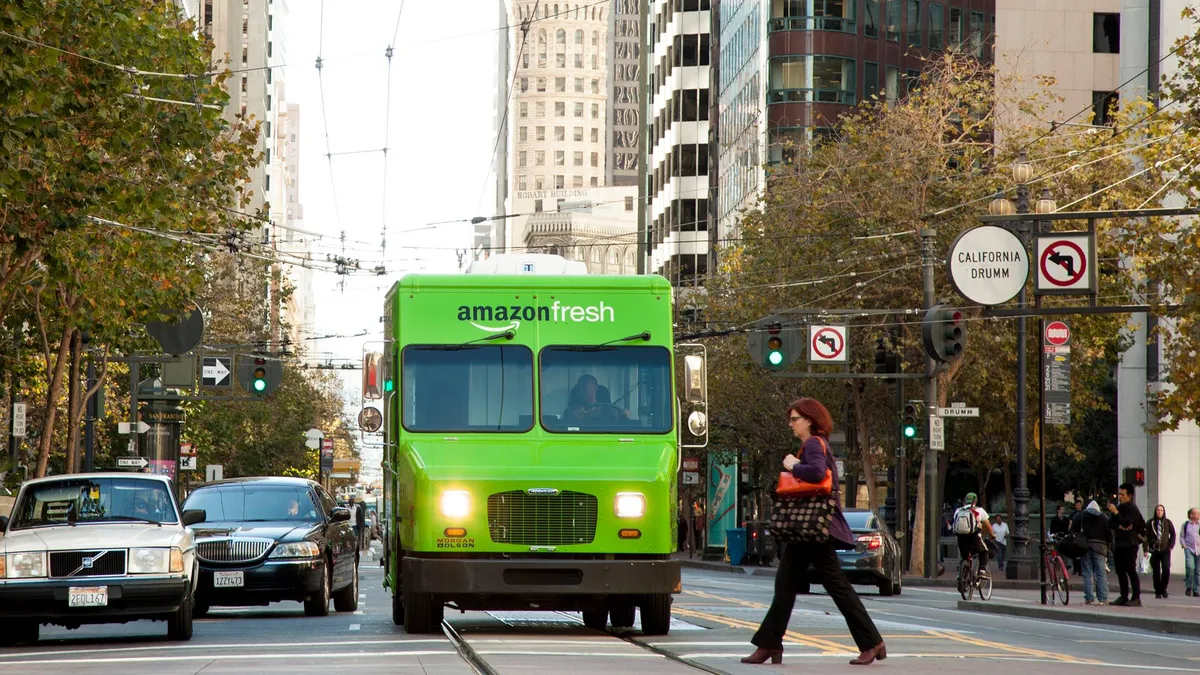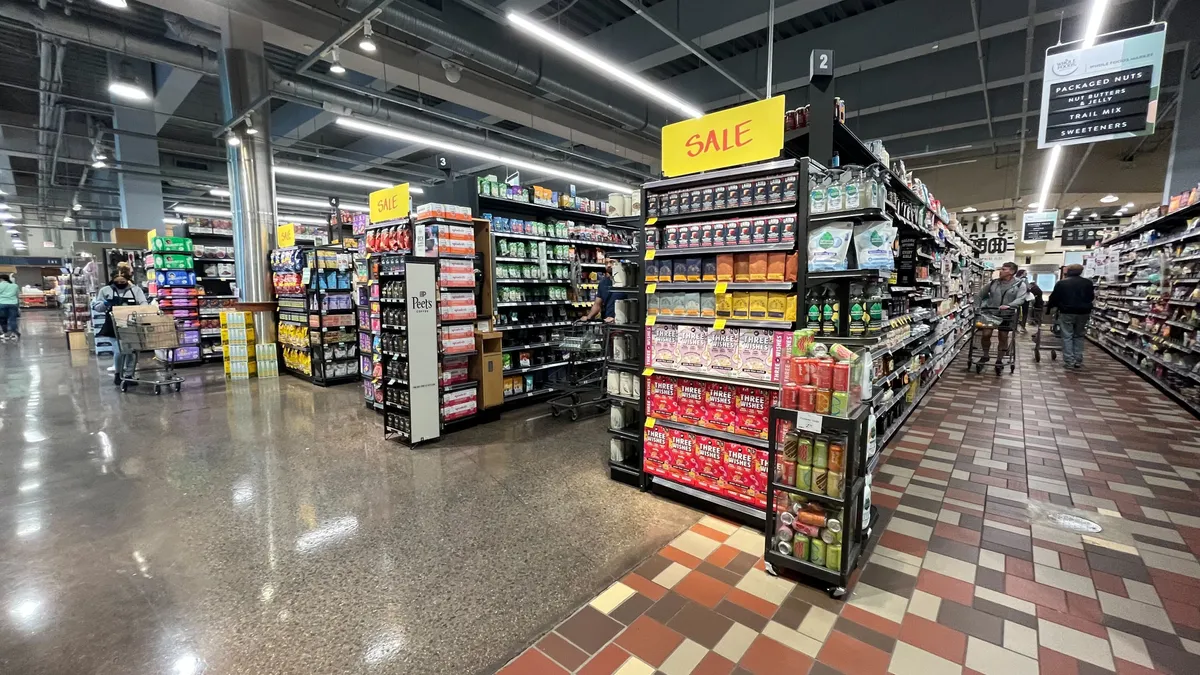Dive Brief:
- Amazon is evaluating a technology that creates shelf-stable prepared meals, according to Fortune. The process, called microwave assisted thermal sterilization, or MATS, and can keep food fresh for up to a year without needing to be refrigerated or frozen.
- Amazon has met with researchers at Washington State University who have developed MATS technology with the U.S. military. Experts say Amazon could see significant cost and supply advantages with shelf-stable prepared foods.
- MATS works by placing containers of food into pressurized water, then heating them with several microwaves. The process retains the food’s texture, flavor and nutrients, according to the firm that’s taking the technology to market.
Dive Insight:
From drone delivery to its ill-fated smartphone, Amazon is renowned for its willingness to experiment. As founder and CEO Jeff Bezos has pointed out, this resilience and willingness to learn has proven key to his company’s success.
Investing time and money into a military-grade technology such as MATS is in keeping with this experimental nature. The process, which uses pressurized water and microwaves to preserve fresh food without needing to refrigerate or freeze it, sounds like something out of a science fiction novel. The breakthrough might, as experts interviewed by Forbes point out, be a way for Amazon to distribute fresh foods through its current supply chain, and without having to invest as much in cold storage. MATS also could save the company on inventory loss that typically occurs when fresh food expires.
However, while the technology seems to benefit Amazon’s operations, consumers aren't exactly clamoring for shelf-stable prepared food. The processing required, though innovative, may still turn off those seeking out fresh items. Many may flat-out distrust prepared foods that straddle the line between fresh and processed.
At the same time, MATS could help Amazon sell prepared foods for really cheap, which could help consumers overcome their hesitancy. Combined with Amazon’s fresh meal kits, which news reports recently noted the company is developing, the new offerings could help the tech giant target different consumer segments.
This is all pure speculation, of course, as MATS technology hasn’t yet gone through consumer testing, and Amazon is still in the early stages of its evaluations. If anything, the news is a sign of Amazon’s drive to get ahead of competitors in grocery retailing and production. It also shows just how closely the company’s food moves are being monitored as it's about to become a major player in the supermarket industry, highlighted by its $13.7 billion purchase of Whole Foods.










